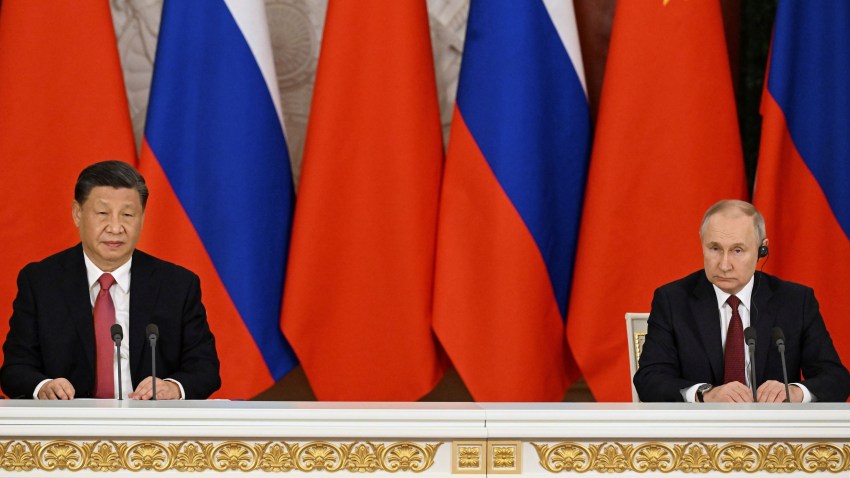In mid-September, Chinese Foreign Minister Wang Yi traveled to Moscow for bilateral talks on China and Russia’s strategic ties, as well as to prepare Russian President Vladimir Putin’s visit next month to the Belt and Road Initiative summit in Beijing. Throughout Wang’s trip, remarks about the synergies in Russian and Chinese perspectives of U.S. hegemony and the war in Ukraine featured prominently.
But the effusive rhetoric on display in Moscow as well as during other recent high-level meetings between the two sides masks a significant vulnerability in the Russia-China strategic partnership: Although Russia and China champion the creation of a multipolar world order and routinely align their votes at the United Nations Security Council, their actual cooperation on the ground lags far behind, particularly in the Middle East and Africa.
This dearth of collaboration stems, on one hand, from Russia’s trepidations about China’s rising profile in global diplomacy and, on the other, from China’s growing exasperation with Russia’s reliance on destabilization and gray-zone tactics for power projection.

